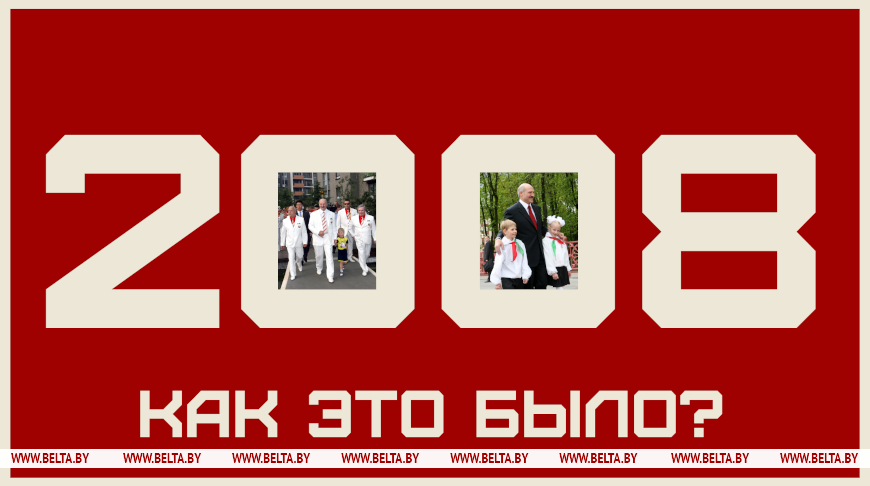
MINSK, 1 November (BelTA) - The year 2008 was truly eventful: a large-scale construction project in Minsk, the decision to build a BelNPP, one of the key strategic facilities of Belarus, and Belarusian President Aleksandr Lukashenko hosting the leaders of Venezuela and Libya in Minsk. To learn more about Belarus’ milestones in 2008, please watch the new episode of BelTA’s YouTube project "How It Was".
It began with the decision by the Security Council to build a nuclear power plant. At the initial stage Belarus had a lot of help from Russian friends. But there were also those who worked very hard to throw sand in the wheels. Work had not yet begun, when Vilnius declared the Belarusian nuclear power almost a threat to the entire region.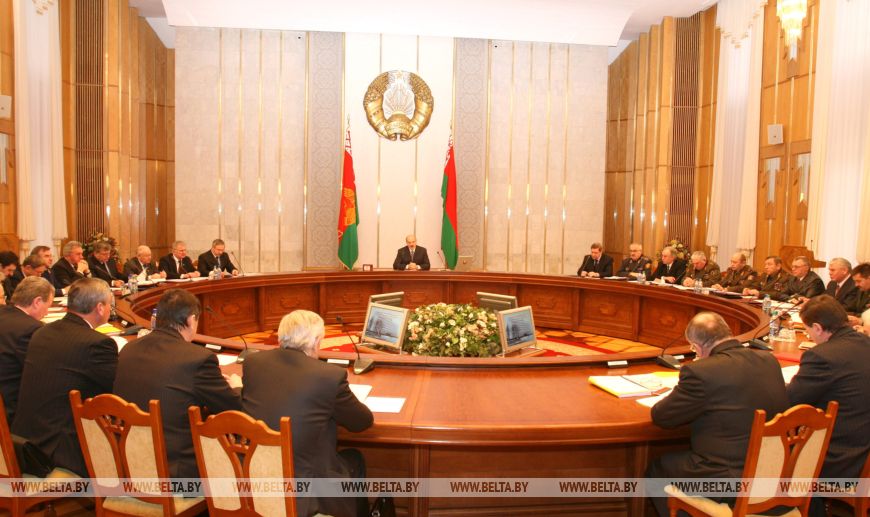
But what do we see today? The Lithuanian authorities are actively discussing the construction of a site for radioactive waste from the decommissioned Ignalina nuclear power plant. This is the official position. But the residents of the Baltic states are worried that other European countries will dump their radioactive waste in Lithuania.
Meanwhile the Belarusian NPP is up and running. It is fully compliant with all IAEA safety standards and recommendations. This has been confirmed repeatedly, including during the recent visit to Belarus of a delegation led by IAEA Director General Rafael Grossi. His opinion carried more weight that the opinion of Lithuanian politicians.
But let's rewind the clockback to 2008. While the nuclear power plant project was still under discussion, the large-scale construction of Minsk Arena was in full swing in the capital city. This projectalso drewa lot of criticism with some questioning its purpose and funding.Today Belarusians can no longer imagine the capital without Minsk Arena. It is not only a sports facility; it is also a concert venue hosting the country's biggest music shows.
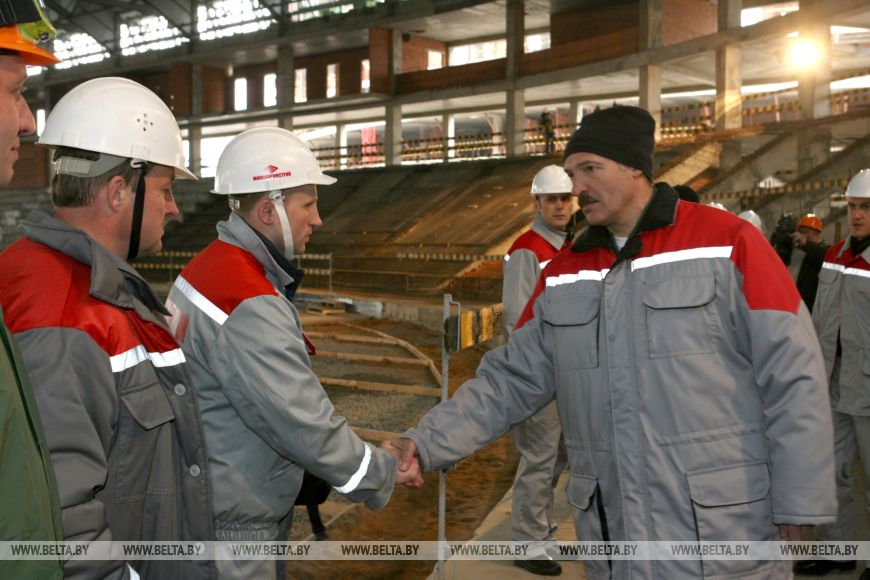
Aleksandr Lukashenko also contributed toits construction. In 2008 the president worked on its construction site duringa national clean-up day. At the end of the year, a world-class velodrome was commissionedthere, the only one of this kindin the post-Soviet space back then.
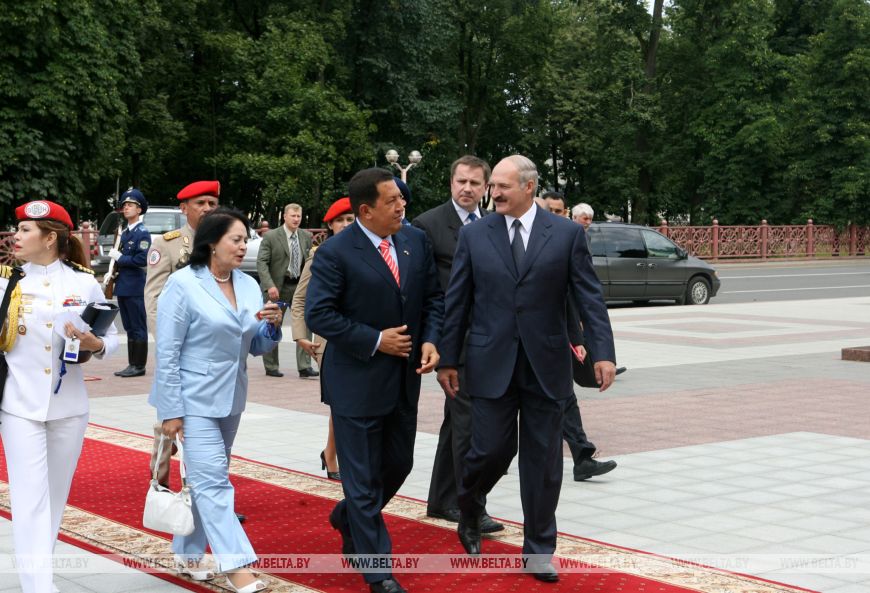
This year was also remembered for high-profilemeetings with foreign counterparts. For example, VenezuelanPresident Hugo Chávez, a good friend of Aleksandr Lukashenko and Belarusian people, visited Minsk. When talking tohis Venezuelan counterpart, the Belarusian head of state noted that Belarusians highly value and appreciate friendship with Venezuela.
"In addition to economic interests, you have the most reliable friends in Belarus! We will return the favor and treat Venezuelans the way they treat us and we will do everything to resolve any issue facing Venezuela,"Aleksandr Lukashenko assured Hugo Chávez.
No less remarkable was the meeting with leader of Libya Muammar Gaddafi who first arrived in Minsk in 2008. AleksandrLukashenko personally welcomedhim at the airport.
“We want peace to prevail throughout the world. We want no more disasters like the Second World War,” the leader of the Great Libyan Revolution stated.
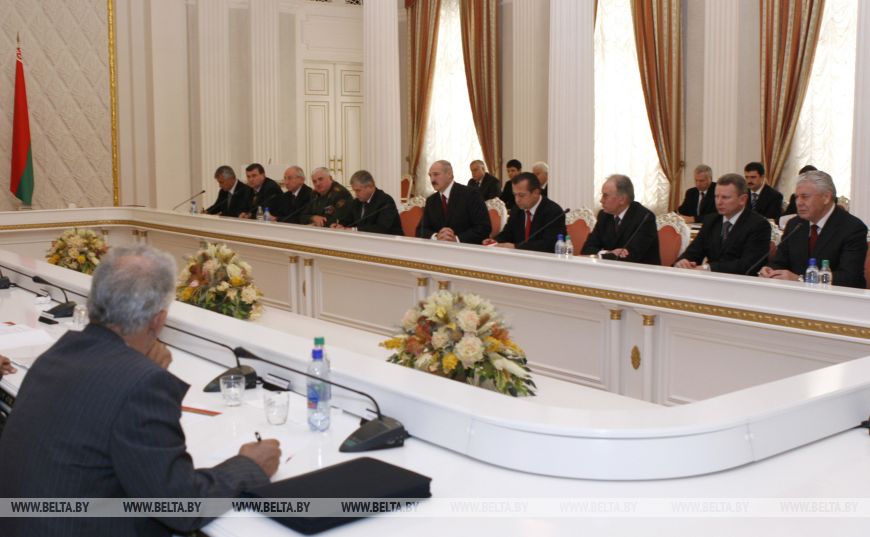
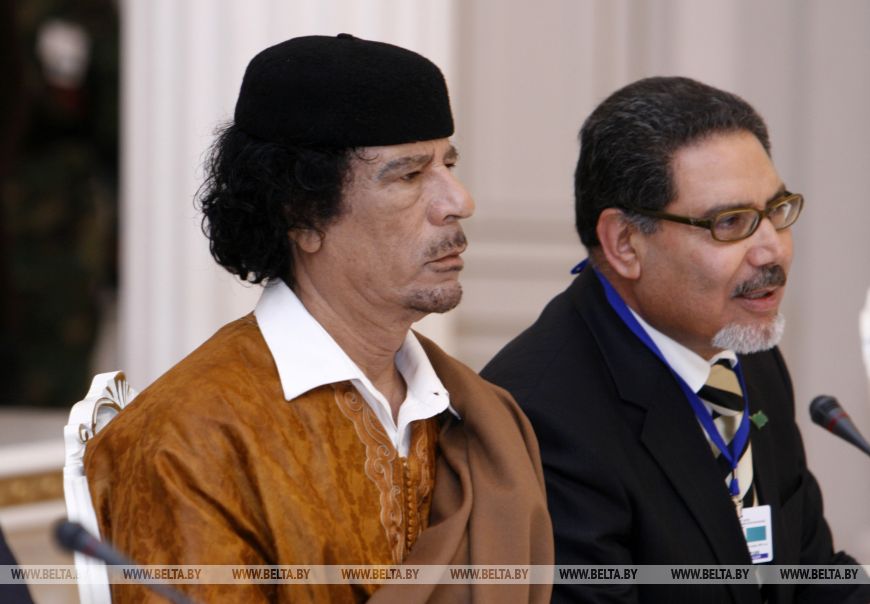
One of the landmark sites Muammar Gaddafi visited in Belarus was the Museum of the Great Patriotic War, and left an entry in the guest book: “I strongly condemn the brutal Nazi aggression against peace-loving peoples such as the people of Belarus. I am deeply impressed by the incredible courage of the Belarusian people in standing up to this aggression. Praise Allah, these peoples eventually won. Thanks to their children, the country was rebuilt after the terrible events. Immortality to the victims! Victory to the peoples! Death to the aggressors!”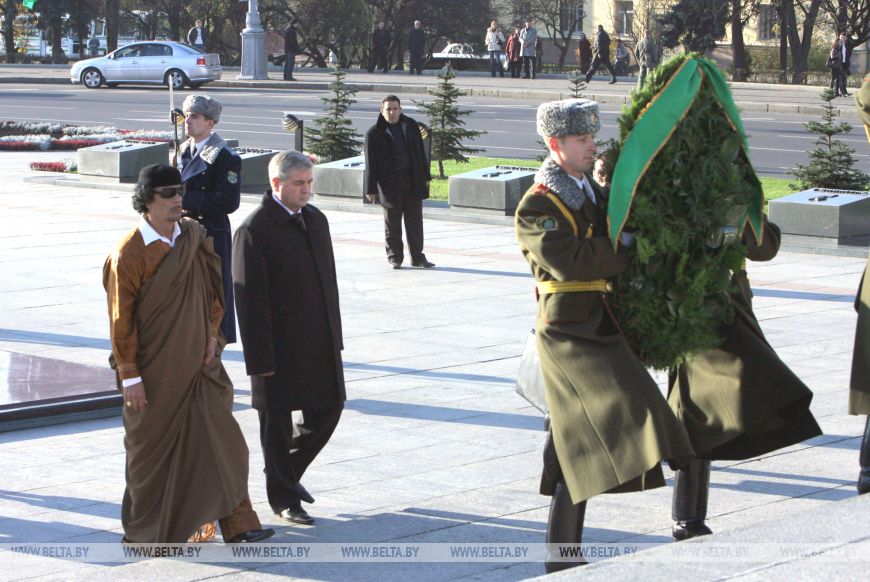
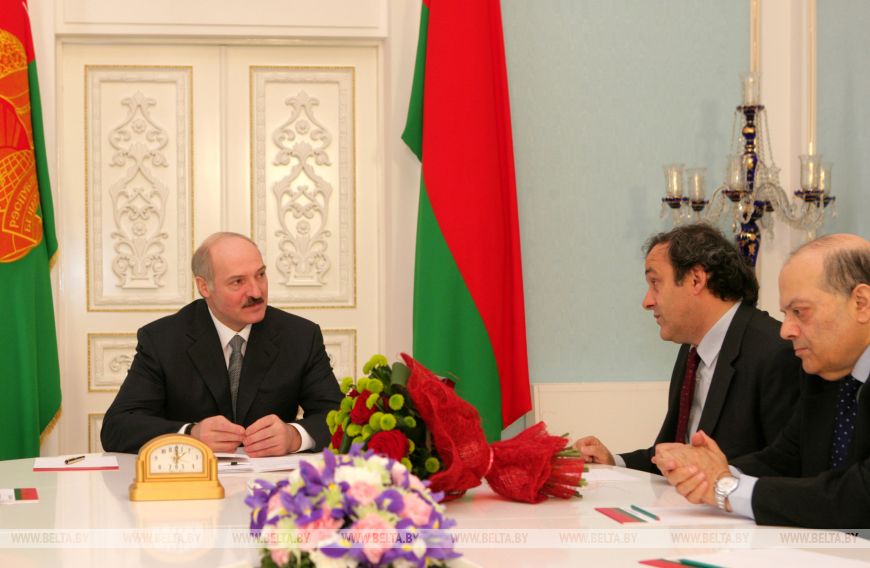
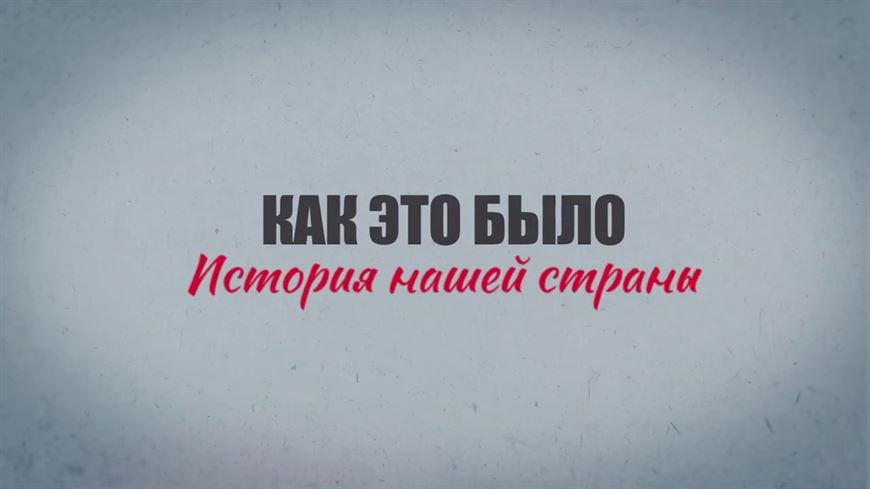
It began with the decision by the Security Council to build a nuclear power plant. At the initial stage Belarus had a lot of help from Russian friends. But there were also those who worked very hard to throw sand in the wheels. Work had not yet begun, when Vilnius declared the Belarusian nuclear power almost a threat to the entire region.

But what do we see today? The Lithuanian authorities are actively discussing the construction of a site for radioactive waste from the decommissioned Ignalina nuclear power plant. This is the official position. But the residents of the Baltic states are worried that other European countries will dump their radioactive waste in Lithuania.
Meanwhile the Belarusian NPP is up and running. It is fully compliant with all IAEA safety standards and recommendations. This has been confirmed repeatedly, including during the recent visit to Belarus of a delegation led by IAEA Director General Rafael Grossi. His opinion carried more weight that the opinion of Lithuanian politicians.
But let's rewind the clockback to 2008. While the nuclear power plant project was still under discussion, the large-scale construction of Minsk Arena was in full swing in the capital city. This projectalso drewa lot of criticism with some questioning its purpose and funding.Today Belarusians can no longer imagine the capital without Minsk Arena. It is not only a sports facility; it is also a concert venue hosting the country's biggest music shows.

Aleksandr Lukashenko also contributed toits construction. In 2008 the president worked on its construction site duringa national clean-up day. At the end of the year, a world-class velodrome was commissionedthere, the only one of this kindin the post-Soviet space back then.

This year was also remembered for high-profilemeetings with foreign counterparts. For example, VenezuelanPresident Hugo Chávez, a good friend of Aleksandr Lukashenko and Belarusian people, visited Minsk. When talking tohis Venezuelan counterpart, the Belarusian head of state noted that Belarusians highly value and appreciate friendship with Venezuela.
"In addition to economic interests, you have the most reliable friends in Belarus! We will return the favor and treat Venezuelans the way they treat us and we will do everything to resolve any issue facing Venezuela,"Aleksandr Lukashenko assured Hugo Chávez.
No less remarkable was the meeting with leader of Libya Muammar Gaddafi who first arrived in Minsk in 2008. AleksandrLukashenko personally welcomedhim at the airport.
“We want peace to prevail throughout the world. We want no more disasters like the Second World War,” the leader of the Great Libyan Revolution stated.


He emphasized the need to reform the existing system of international security under the UN. Unfortunately, the system was already noticeably failing at that time - Muammar Gaddafi was killed in 2011 after the NATO aggression against Libya. The country plunged into the deepest crisis, from which it has not emerged to this day.
One of the landmark sites Muammar Gaddafi visited in Belarus was the Museum of the Great Patriotic War, and left an entry in the guest book: “I strongly condemn the brutal Nazi aggression against peace-loving peoples such as the people of Belarus. I am deeply impressed by the incredible courage of the Belarusian people in standing up to this aggression. Praise Allah, these peoples eventually won. Thanks to their children, the country was rebuilt after the terrible events. Immortality to the victims! Victory to the peoples! Death to the aggressors!”

Belarus hosted many other foreign guests.What did Aleksandr Lukashenko confess to UEFA President Michel Platini?What difficulties did our track and field athletes face at the Beijing Olympics?What unique 12-hour operationdid our doctors perform? This and many other milestone events are featured in the new episode of BelTA’s YouTube project “How It Was”.















